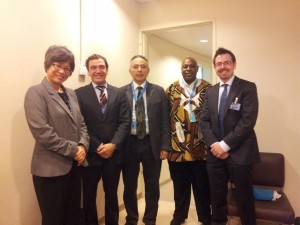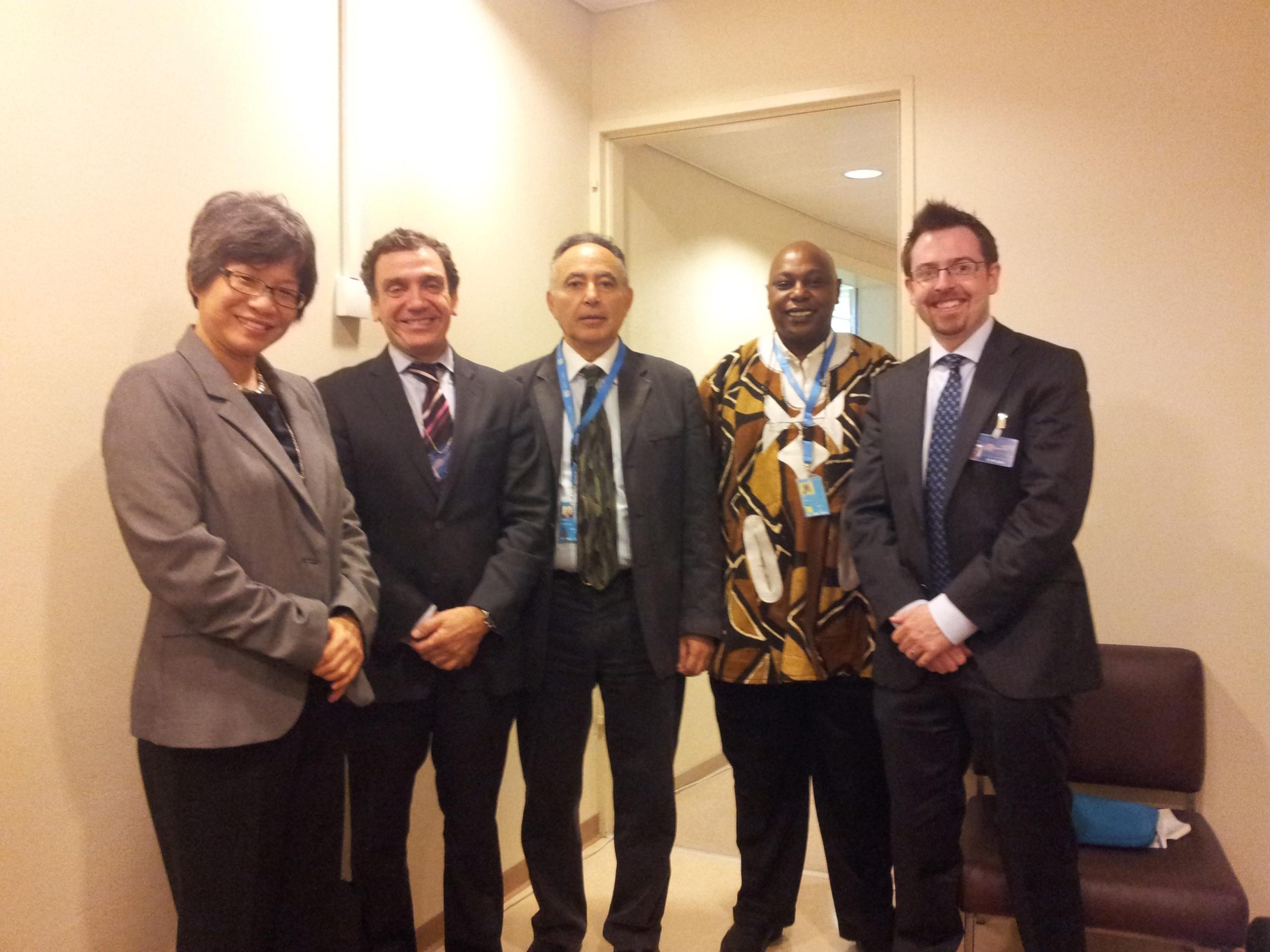 On the 14th of September, the United Nations Human Rights Council held a high level panel to discuss how to provide protection and promote the rights of peaceful protestors. The panel comes in response to the wide scale brutal repression of pro-democracy protesters throughout the Arab world over the last ten months. Speaking from the panel the Director of the Cairo Institute for Human Rights Studies (CIHRS), Bahey eldin Hassan, called on the international community to provide protection for protestors throughout the Arab region, and to stop ignoring the situations in Bahrain and Yemen. Mr. Hassan also pointed out that evidence emerging from Bahrain and Yemen may indicate the commission of Crimes Against Humanity in these countries, the first time this observation has been made before the United Nations. In reponse to the brutal repression of protests throughout the Arab region, Mr. Hassan
On the 14th of September, the United Nations Human Rights Council held a high level panel to discuss how to provide protection and promote the rights of peaceful protestors. The panel comes in response to the wide scale brutal repression of pro-democracy protesters throughout the Arab world over the last ten months. Speaking from the panel the Director of the Cairo Institute for Human Rights Studies (CIHRS), Bahey eldin Hassan, called on the international community to provide protection for protestors throughout the Arab region, and to stop ignoring the situations in Bahrain and Yemen. Mr. Hassan also pointed out that evidence emerging from Bahrain and Yemen may indicate the commission of Crimes Against Humanity in these countries, the first time this observation has been made before the United Nations. In reponse to the brutal repression of protests throughout the Arab region, Mr. Hassan
called for a new international Declaration to be created by the Human Rights Council and adopted by member states of the UN General Assembly, which would create guidelines and principles that governments should adhere to in order to respect the human rights of protestors.
The panelists also included Mohamed Nasheed, the President of the Maldives, Maina Kiai, the UN Special Rapporteur on the Freedom of Peaceful Assembly and Association. The key note speaker of the panel, the President of the Maldives, began the panel by praising the courage of those who have taken to the streets in the Arab region to demand democracy, and calling on all governments to support their struggle.
Addressing the United Nations, Bahey eldin Hassan, decried the double standards that have characterized the response of nearly all governments around the world to the repression and assaults on peaceful protestors in various Arab countries. Hassan cited the failure of the UN Human Rights Council to adequately deal with grave rights violations in Bahrain and Yemen, and the unwillingness of some members of the UN Security Council to refer the situation in Syria to the International Criminal Court, which, he said, constituted a betrayal of the victims and a failure the uphold the principle of the responsibility to protect.
Hassan dedicated his speech to the peaceful protestors in the Arab world who died and suffered struggling for dignity and freedom from despotic governments or the misguided interests of foreign governments. He also dedicated his speech to several democracy activists and human rights defenders in the Arab world who have faced violence and imprisonment for their pro-democracy activities including the Bahraini rights activist Abdul Hadi al-Khawaja, Syrian cartoonist Ali Ferzat, and Egyptian blogger Michael Nabil. Finally, he praised the new generation of rights groups in the Arab world, especially in Egypt, such as the No Military Trials Group, for their pioneering role in the defense of human rights.
The session also marked the first time the Human Rights Council addressed the Arab revolutions in Tunisia, Bahrain, Egypt, and Yemen, after some member states impeded action on these states and the grave abuses faced by Arab peoples in these nations.
Hassan’s speech addressed the grave violations committed by Arab governments in their decades-long suppression of peaceful protests and how the pretext of fighting terrorism has been used by governments around the world to allow immunity from punishment and support of these repressive governments. He added that peaceful protests in the Arab region have done more to weaken Al Qauda and their philosophy of violence then the vast amount of resources invested in counter-terrorism.
Hassan said that the situation in Egypt and Tunisia needs sustained attention, especially in Egypt where a sever regression of human rights policy is currently being carried out by the authorities. Despite the revolutionaries’ success in ousting the heads of despotic regimes, post-revolution governments have proved unable to maintain a serious social dialogue with rights organizations and political parties. He said that while the government of Tunisia had managed to create some semblance of a dialogue, in Egypt repressive policies persist, such as laws that violate human rights charters and ongoing military trials for civilians.
In a related context, Hassan submitted a set of proposals to meet the challenges impeding the promotion and protection of human rights in the context of peaceful protests. The primary responsibility, he said, rests with the governments of states witnessing such protests, but internationally, political calculations that effectively obstruct rapid, coordinated protection for protestors must be countered. Hassan urged the Council to issue a Declaration containing guidelines and principles for the promotion and protection of human rights in the context of peaceful protests, to be approved by the UN General Assembly, making several suggestions derived from the experiences of the Arab region.
From the floor, a representative of the Arab group said that the Arab people all aspire to democratization and that Arab governments respect the right of their people to peacefully demonstrate. But argued that this does not preclude the state’s need for accurate information about participants in such protests. Often, he said, seditious and violent elements will infiltrate such groups, while other parties seek to exaggerate the events and disseminate false news for their own personal political aims.
An EU representative stated, “The right to demonstration is not absolute, but suppression is not the solution. The revolutionaries in the Arab region succeeded in achieving what only a few around the world believed or expected.” Michael Hamilton, the secretary of the panel of experts on freedom of assembly in the Office of Democratic Institutions and Human Rights, added, “A person does not lose his right to peaceful demonstration simply because another individual chooses to use violence in the demonstration.”
In this context, Hassan noted that laws regulating peaceful protest in most Arab states are often in violation of international agreements and are used by governments to suppress demonstrations. He remarked that post-revolution Egypt has seen a marked deterioration in the human rights situation and regressive government policies.
Other panelists included Santiago Canton, the secretary-general of the Inter-American Commission on Human Rights; Michael Hamilton, the secretary of the panel of experts on freedom of assembly in the Office of Democratic Institutions and Human Rights; and Khaw Lake Tee, the president of the Human Rights Commission of Malaysia. The Deputy High Commissioner for Human Rights also spoke from the panel. Government representatives, and civil society organizations around the world attended the session.
Appendices to the press release:
1. Paper presented by Bahey eldin Hassan at the session
Share this Post

